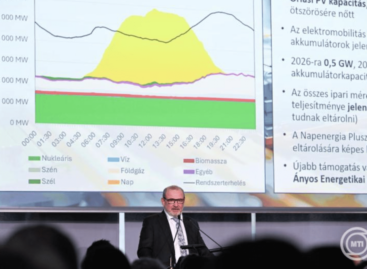The Council of the EU approved the legislation on net zero emission industry
The Council of the European Union has finally approved the legislation on net zero emission industry, the purpose of which is to make the EU’s internal market capable of achieving carbon dioxide-free industry, the EU Council informed on Monday.
The purpose of the adopted legislation is to increase the production of clean technologies in the EU and to ensure that the European Union has the appropriate tools for the transition to clean energy.
The legislation aims to strengthen the resilience and competitiveness of EU production with zero net emissions, making energy systems safer and more sustainable. It creates better conditions for the creation of net-zero emission projects in Europe and attracts investments with the aim that the EU’s net-zero technological manufacturing capacity approaches or reaches at least 40 percent of construction needs by 2030. It will accelerate the transition to climate neutrality, necessary to achieve the EU’s 2030 climate and energy policy goals, and support the EU’s energy independence efforts.
Related news
Related news
Lidl launches campaign with tennis star Steffi Graf
🎧 Hallgasd a cikket: Lejátszás Szünet Folytatás Leállítás Nyelv: Auto…
Read more >Amazon expanding same-day prescription delivery to 4,500 cities & towns
🎧 Hallgasd a cikket: Lejátszás Szünet Folytatás Leállítás Nyelv: Auto…
Read more >







